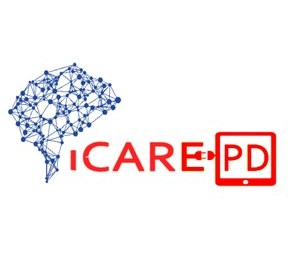Ricerca
AICCELERATE | Co-Funded by the Horizon 2020 Framework Programme of the European Union |
|---|---|
 | Palliative care in Parkinson's Disease Helsinki University Hospital (HUS) is leading a European Union project that aims to develop an adaptable AI-based toolset for a variety of clinical use cases. The project will start in early 2021 and its pilot cases will focus on patient-centric digital care pathways and on optimizing patient flow management. The AICCELERATE consortium consists of specialists in the fields of IT, machine learning, robotics, neurology, paediatrics and surgery from Finland, Italy, Spain, Turkey, Netherlands, Germany and Belgium. Healthcare systems lack flexible AI solutions that allow hospitals to improve efficiency and the quality of patient care. Current solutions provide limited scalability and are confined to isolated applications. Scalable models that address data sharing, integration, privacy, and ethics are needed to ensure better adoption of AI in healthcare. Patient empowerment and evidence-based trust towards AI is a key part of the project. Evaluation activities will also focus on cost-benefit analysis of the AI-solutions. AICCELERATE will develop partners’ existing digital solutions further to enable the development of a Smart Hospital Care Pathway (SHCP) Engine. This engine serves as a toolset for AI models and robotics to improve quality of care and health outcomes. It will also enable lean management and effective decision-making. These tools are tested in three pilots that will provide feedback for improving the SHCP Engine: (i) patient flow management for ER and surgical units, (ii) digital care pathway for Parkinson’s disease, and (iii) paediatric service delivery. The pilots are carried out by 5 hospital partners: Helsinki University Hospital and Oulu University Hospital from Finland, Ospedale Pediatrico Bambino Gesù from Italy, Barcelona Children's Hospital from Spain, and University Hospital Università degli Studi di Padova from Italy. In addition to these above mentioned hospitals The AICCELERATE consortium is formed by Erasmus Univ. Rotterdam from Netherlands, RTO Fundació Eurecat from Spain, a Spanish non-profit TICBioMed, 6 SMEs aiming to advance the digitalization of the European healthcare services: Chino from Italy, Symptoma from Austria, Nuromedia from Germany, SRDC from Turkey, Evondos from Finland, NeuroPath from Belgium, and 2 large enterprises NEC Laboratories Europe from Germany and Innofactor from Finland. The preparation of the proposal was supported by Spinverse from Finland. More information: Development Manager: Tuuli Pajunen tuuli.pajunen@hus.fi; tel: +358 40 182 5028 Sito web: link |
PD_Pal | Co-Funded by the Horizon 2020 Framework Programme of the European Union |
 | Palliative care in Parkinson's Disease |
iCARE-PD | |
 | Integrated Parkinson Care Networks: addressing complex care in Parkinson disease in contemporary society |
INBIOMED | Funded by the Italian Ministry of Education, University and Research |
INnovative products with high biotechnological content for BIOMEDICAL sector | |
IVA PD-MCI | Funded by the Italian Ministry of Health |
Multicenter study to validate the mild cognitive impairment in Italian patients with Parkinson’s Disease |
Trial Clinici
La Roche BN42358 |
|
|---|---|
Studio di fase IIB, randomizzato, in doppio cieco, controllato con placebo e multicentrico per valutare l’efficacia e la sicurezza di prasinezumab per via endovenosa in partecipanti con malattia di Parkinson in fase iniziale. | |
Parexel PD0053 - LEGIONE |
|
Studio di fase 2A, randomizzato, in doppio cieco, controllato con placebo, della durata di 18 mesi, per valutare l’efficacia, la sicurezza, la tollerabilità e la farmacocinetica di UCB0599 somministrato per via orale nei partecipanti allo studio con malattia di Parkinson allo stadio iniziale. | |
Irlab IRL790C005 v1.1 |
|
Uno studio di Fase IIB randomizzato, in doppio cieco, controllato con placebo, che valuta l'efficacia del mesdopetam durante il tempo ON giornaliero senza fastidiose discinesie in pazienti con malattia di Parkinson. | |
BIA-91067-404 |
|
 | Studio clinico randomizzato in doppio cieco, controllato con placebo per valutare l’effetto di opicapone 50 mg in pazienti affetti da malattia di Parkinson con fluttuazioni motorie di fine dose e dolore associato |
| |
 | Un'estensione in aperto dello Studio M15-741 per valutare la sicurezza e la tollerabilità dell'esposizione giornaliera per 24 ore all'infusione sottocutanea continua di ABBV-951 in soggetti con malattia di Parkinson. |
Z7219K01 | |
 | Studio pilota, di 12 settimane, multicentrico, randomizzato, in doppio cieco, controllato con placebo, esplorativo, per valutare la sicurezza e l'efficacia di safinamide 200 mg una volta algiorno, come terapia aggiuntiva, in pazienti con possibile o probabile variante parkinsoniana dell'atrofia multisistemica |
IPX203-B16-02 |
|
 | Studio clinico randomizzato controllato per paragonare la sicurezza e l'efficacia del IPX203 a rilascio-immediato di Carbidopa-Levodopa in pazienti con Malattia di Parkinson con fluttuazioni motorie. |
ND0612-317 |
|
 | A multicenter, randomized, active-controlled, double-blind, double-dummy, parallel group clinical trial, investigating the efficacy, safety, and tolerability of continuous subcutaneous ND0612 infusion in comparison to oral IR-LD/CD in subjects with Parkinson’s disease experiencing motor fluctuations (BouNDless). |
CVL-751-PD |
|
 | CVL-751-PD-001 A phase 3, double-blinded, randomized, placebo-controlled, parallel-group, 27-week trial of the efficacy, safety, and tolerability of two fixed doses of Tavapadon in early Parkinson's Disease. |
UCB |
|
Uno studio in doppio cieco, controllato con placebo, fase 2 per valutare l'efficacia, la tollerabilità dell'UCB0107 in soggetti con Paralisi Progressiva Supranucleare (PSP). | |
CTH |
|
 | CTH-301 An Open-Label, Phase 3 Study Examining the Long-Term Safety, Tolerability and Efficacy of APL-130277 in Levodopa Responsive Patients with Parkinson’s Disease Complicated by Motor Fluctuations (“OFF” Episodes) |
Progetti conclusi
PD_Manager | Funded by the Horizon 2020 Framework Programme of the European Union |
|---|---|
 | mHealth platform for Parkinson's disease |
Trial conclusi
ACP-103-045 |
|
|---|---|
 | Studio in doppio cieco controllato con placebo di primavanserina sulla prevenzione delle recidive per il trattamento di allucinazioni e manie associate a psicosi correlata alla demenza |
E2027 |
|
 | Uno studio randomizzato, controllato con placebo, in doppio cieco, a gruppi paralleli per valutare l'efficacia, la sicurezza e la tollerabilità di E2027 in soggetti affetti da demenza a corpi di Lewy. |
PD-PAMELA | |
 | Percorso terapeutico nella Malattia di Parkinson con fluttuazioni: studio multicentrico osservazionale italiano, PD-PAMELA. |
BHV3241-301 | |
 | Studio randomizzato, in doppio cieco, controllato con placebo, a gruppi paralleli per valutare l'efficacia and la sicurezza del BHV-3241 in soggetti con Atrofia Multisistemica (M-STAR Study). |





